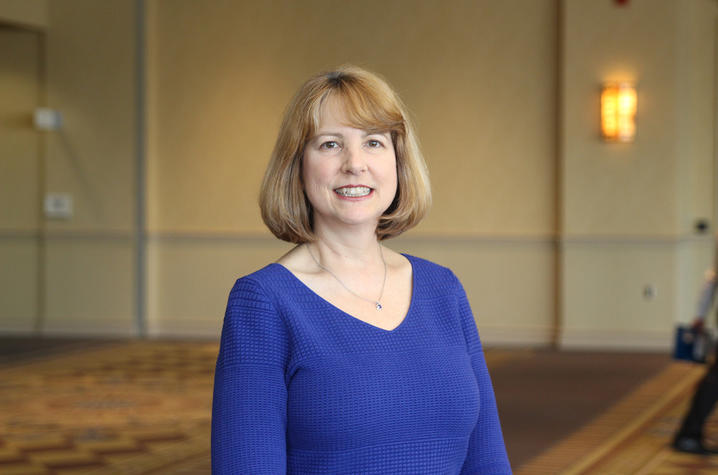Nursing Researcher Awarded $2.5 Million to Address Health Issues in Rural Kentucky

Kentucky is known for basketball, bluegrass music and bourbon. It ranks #12 in the country for natural beauty and is known all over the world for thoroughbred racehorses. But Kentucky also ranks highly among things it would rather not be known for, including high rates of obesity, heart disease and diabetes. Gia Mudd-Martin, Ph.D., a researcher in the University of Kentucky College of Nursing, is looking for ways to change that with a new study designed to give people the tools they need to take control of their health.
“As a community-engaged researcher, I have consistently heard from community members about the need to work to lessen the burden caused by heart disease and diabetes,” said Mudd-Martin. “This study and other research conducted with team members Rosa Martin and the community health workers is in response to this need.”
Mudd-Martin is testing the effectiveness of two interventions aimed at encouraging healthy behaviors such as physical activity, healthy eating and smoking cessation for the populations of rural areas of Bourbon, Rowan, Nicholas and other nearby counties. One intervention is focused on working with families to support healthy behaviors and the other is geared toward influencing the behaviors of individuals. Trained community health workers will recruit participants and lead them in intensive eight-week health education programs.
After the eight weeks, they will follow up with the participants monthly on their progress. The goal of the study is to find out if a family- or individual-based approach is more effective in helping people adopt healthier lifestyles. Mudd-Martin and her colleagues on the RICH Heart team have a long history of collaborating with Kentucky communities that has resulted in the development of both Spanish- and English-language versions of the interventions to target populations with greatest risk for heart disease and diabetes in these rural communities.
“This really increases the potential for whichever program we find to be most effective for wide dissemination because it is a community based participatory guided study,” said Mudd-Martin. “We will engage with our community collaborators at the end of the study to share the results widely and also determine next steps of taking what we find and implementing it in the communities that we're partnering with.”
Participants in the study will enroll for one year, at the outset of which they will take a pre-participation survey of their lifestyle and eating habits, as well as have measurements taken such as weight, blood pressure, cholesterol and blood sugar. During the study, they will have access to healthy living information and resources and regular contact with community health workers. At the end of the year, they will again have their health metrics measured, as well as be assessed as to whether they feel they can turn healthy habits into sustained lifestyle changes.
The COVID-19 pandemic somewhat altered the initial design of the study, but Mudd-Martin said she can work around it. She will spend the next few months finalizing the interventions and training community health workers. When a vaccine becomes available, the community health workers can meet with participants in person to provide coaching and other resources. Mudd-Martin also notes that during the past six months, many people’s healthy habits have fallen by the wayside and that this could be a good opportunity to help them build new skills to take control of their health.
“People have really suffered during quarantine,” said Mudd-Martin. “People who were perhaps engaging in healthy lifestyles have not been able to keep that up. We're very concerned about health outcomes. People have been decreasing their activity and not eating perhaps as healthfully as they were pre-pandemic, so this study is well-timed.”
The $2.5 million study is funded by the National Institute of Health and its Institute of Nursing Research and the NIH Office of the Director under Award Number R01NR019456. The content is solely the responsibility of the authors and does not necessarily represent the official views of the National Institutes of Health.
Anyone who is interested in finding out more about the study can contact Dr. Mudd-Martin at Gia.Mudd@uky.edu.
More from this series Research Priorities - Cardiovascular
Credits
Hilary Brown (Public Relations and Strategic Communications)


